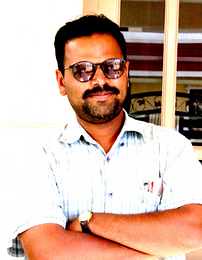India a global power? Tall claim, says Pitroda
Indrani Roy Mitra in New Delhianuary 08, 2007 11:49 IST
Mincing words is just not his cup of tea. Satyanarayan Gangaram aka Sam Pitroda is fond of calling spade a spade. Ask him if India is fast developing as a global power, and "Nah" comes the grimace.
"I don't understand how someone can make such an irresponsible statement," follows the rebuttal. Look at the garbage piled up on the roads, visit Indian towns and villages and just take a look at the sanitation problems. Do you know more than 60 per cent of the villages cannot provide safe drinking water to their population?"
In New Delhi to attend the Pravasi Bharatiya Divas, Pitroda wears a disgruntled look whenever you talk about India's growth and the much-discussed 'progress' it has made.
"We, Indians, are a funny lot. We feel happy patting our backs for imaginary achievements. If there is a molehill, we instantly create a mountain out of it and start praising ourselves. It's a sad thing to do. I wish we were mature enough to accept the reality."
Talking to rediff.com, Pitroda thinks "Too much of tall talks are doing the rounds about India's development while too little is done. What we need to do is sit back and do a quick rethink."
The chairman of the National Knowledge Commission says a lot needs to be done to bring about (even) a knowledge revolution in India. As a primary pre-requisite to that "individuals should have the ability to receive and comprehend knowledge.
"As you must be aware, the (Knowledge) Commission has been entrusted with the task of looking at five key areas: Access to Knowledge; Knowledge Concepts; Knowledge Creation; Knowledge Application and Knowledge Services.
"No way can we deny that approximately 250 million adults in India are illiterate. Our target is to achieve functional literacy among at least 90 per cent of the population in the quickest time possible."
Indians, Pitroda thinks, "should have better access to web-based portals providing information on the basic necessities like water, agriculture, education, sanitation, health and other related issues."
The Knowledge Commission, he informs, has drafted a comprehensive policy, which will be presented to the government on January 12.
"It will focus on the aforesaid issues and will also provide easy-to-follow guidelines." Can't we get a sneak preview of the draft? "No," smiles Pitroda. "I suggest you wait till January 13. Trust me, it will be worth the wait."
Refusing to dwell on the oft-repeated issue of reservation, he is quick to put in that expansion of educational opportunities and facilities, not reservation, should be the key issue.
"In fact, I am against reservation in any field for that matter. Be it education, health, technology or telecom, I believe in people's participation. The idea of demystifying technology and using it to benefit the common man always excites me. Today, there is hardly any difference between telecom, television, broadband and computers - software and hardware. All of these areas are merging and it is the government's duty to make the people of this country a part of it."
Known as the telecom czar of India, Pitroda has no qualms in admitting, "The telecom cat has been let out of the bag and now the onus rests on the government to complete the task. There needs to be well-formulated policies and rulings to consolidate the current position of the Indian telecom industry. It is time we realised that telecom is as essential as water, agriculture, health and housing."
Story

 Vijay Barve
Vijay Barve









